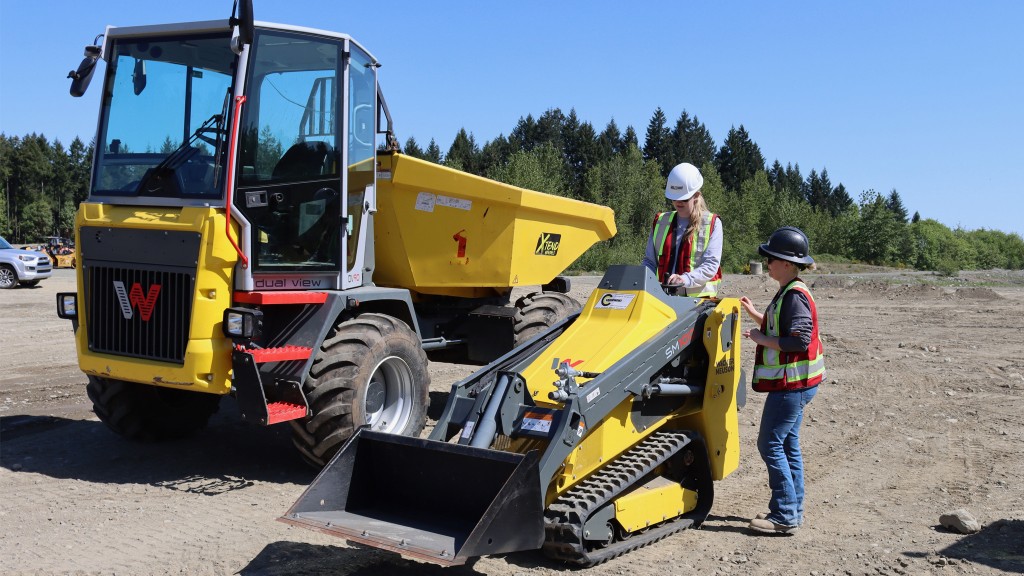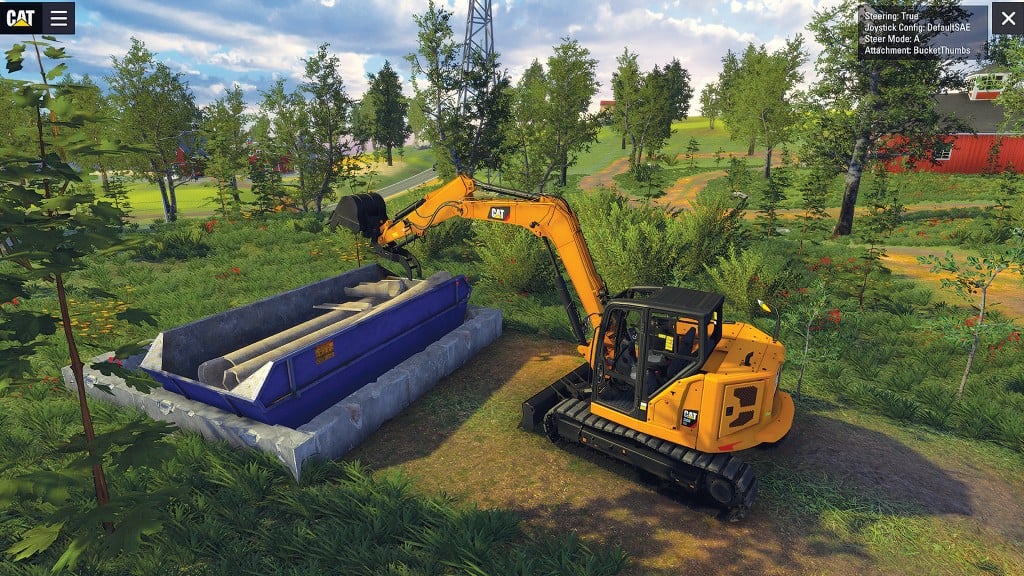Heavy Metal Rocks is preparing the next generation of equipment operators
The Vancouver Island program connects high school students with industry to fuel careers and change perceptions about the trades

On a 40-acre training site just south of Nanaimo, British Columbia, students are trading textbooks for trenching as they take the controls of real heavy equipment. This spring, 32 high school students will rotate through real-world machine stations during Heavy Metal Rocks, an experiential event that introduces teens to the heavy equipment operator (HEO) trade. From the seat of an excavator or grader — and under the guidance of seasoned professionals — they'll dig, grade, and build, many for the first time.
But this experience is not just about playing in the dirt. Hosted by Vancouver Island University (VIU) in collaboration with local school districts and industry partners, Heavy Metal Rocks aims to show students (and their families) that HEO is a viable, fulfilling, and future-ready career path.
"Not everyone is going to thrive in a lecture hall," says Paul Mottershead, associate dean of trades and applied technology at VIU. "This program gives students a chance to find their passion and see a different route to success."
An inside look at Heavy Metal Rocks
Held over two full days, Heavy Metal Rocks offers Grade 10 and 11 students a safe, guided environment to operate real machines, meet industry mentors, and explore career options.
The students rotate through competency stations where they complete small but meaningful tasks, like trenching, rock stacking, or mapping a site using 3D technology. Volunteers from industry, along with VIU instructors and alumni, guide each station. The goal is not only to teach technique, but to instill confidence and spark curiosity.
"We don't want students to just get a job. We want them to start a career," Mottershead explains. "This kind of exposure helps them decide if that path is right for them before they invest time and money."
Although the event doesn't provide formal certification, it lays the groundwork for those interested in pursuing VIU's 21-week HEO certificate program, which includes machine-specific training, safety protocols, and essential theory.
A gateway to dual credit opportunities
Students who find their footing at Heavy Metal Rocks can choose to take the next step sooner than expected, while they're still in high school. Through VIU's dual credit program, eligible Grade 12 students can enroll in post-secondary trades training and earn high school credits at the same time.
VIU reserves several seats each year in its Heavy Equipment Operator program for dual credit participants. Students selected by School Districts 68 and 69 can begin their journey into trades training early, with tuition covered by the school district.
While Heavy Metal Rocks doesn't grant formal credentials, it plays a pivotal role in helping students and school advisors identify those who are well-suited for VIU's full program.
Meeting regional needs with practical solutions
B.C.'s construction and civil infrastructure industries are facing a growing labour gap. According to the WorkBC Labour Market Outlook for 2024 to 2034, British Columbia is projected to have over 5,100 job openings for heavy equipment operators over the next decade. Heavy equipment operators are among the top in-demand trade occupations in the province
"We're feeling it already," says Mottershead. "There's an urgent need for skilled operators, and programs like this are how we fill the pipeline."
To meet this need, VIU has expanded its HEO program to three intakes per year and is working to improve its off-campus training site. Through a combination of internal funding and industry support, the university is upgrading the on-site classroom, adding power infrastructure, and eventually hopes to install running water and permanent facilities.
Education and industry in sync
The program's success hinges on community partnerships. Each year, industry sponsors donate machinery, time, and mentorship, providing both expertise and access to the newest technology.
"We've got everything from contractors lending machines to dealerships like Inland and Kenworth Parker Pacific supplying brand-new equipment for students to try," Mottershead notes. "We even have companies bringing in drones and 3D grading tools to show students what modern job sites look like."
These collaborations aren't just generous, they're strategic. Participating companies get to connect with future talent, observe how students learn, and help shape the workforce they'll eventually hire from. Some even return later to test equipment or host potential recruits.
"It's a win-win," says Mottershead. "Industry gets a front-row seat to the next generation, and students get a firsthand look at what's possible."
Changing perceptions about trades
While hands-on experience is a clear benefit, Heavy Metal Rocks also serves a higher function: correcting outdated perceptions about the trades.
Today's machines are high-tech, often equipped with 3D controls and autonomous capabilities. Operators need to be comfortable with digital systems, understand safety regulations, and think critically about every move.
"It's not just brawn anymore," says Mottershead. "You need brains, too. These are intelligent, high-paying, in-demand careers."
Support beyond the classroom
For many students, entering the trades isn't just about skill, it's also about support. VIU partners with groups like the BC Centre for Women in the Trades and offers pathways for Indigenous and underrepresented students to get involved.
"We've had students come through with disabilities — deaf students, students in wheelchairs — and we work with accessibility services to accommodate them," Mottershead shares. "It's about making the opportunity available, then helping students succeed."
Looking ahead
This year's Heavy Metal Rocks promises to be bigger than ever, with more equipment, more industry support, and a fresh push to include forestry-related machinery. VIU is also working to offer the event annually or every two years, depending on resources.
Students leave with more than just memories, they walk away with clarity, motivation, and, in many cases, a pathway to enrollment in VIU's full HEO program. Parents, too, are invited to visit the site and see what's possible when education meets opportunity.
"Our hope," says Mottershead, "is that students discover what they're capable of, and start building the foundation for a meaningful, lifelong career."
Support the next generation of operators
Industry members or individuals interested in supporting the Heavy Metal Rocks initiative can contact [email protected] for partnership opportunities, equipment donations, or to visit the site.



